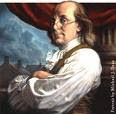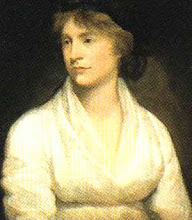30 September 2008
Response to King’s Letter from Birmingham Jail (Rhetoric and Composition)
The letter written by Martin Luther King, Jr. in the Birmingham, Alabama jail in 1964 was exemplar of the effective rhetorical devices discussed by Aristotle in Classical times. Making sure that everyone is on one accord, rhetoric is the ability to speak and write effectively. It is a method used to train effective communicators. Many other definitions can be applied to the term rhetoric. As rhetoric relates to King’s letter, one must explore the three rhetorical types mentioned by Aristotle: ethos, pathos, and logos.
Ethos is how the speaker’s character and credibility aid him or her in influencing the audience. The Letter from Birmingham’s Jail is believable, credible and establishes M.L. King’s character as a Christian. The letter responds to eight clergymen from Reverends to Bishops to Rabbis; it responds to Jews, Gentiles, Protestants, Catholics, Evangelicals, and Episcopals.
In essence, the letter is inclusive. King begins his letter with “My Dear Fellow Clergymen.” The salutation asserts King’s status as a person in Christian leadership. He explains that he seldom responds to the criticisms that come across his “desk”, but since they were men of “genuine good will” that he had to respond. The statement asserts his status within the society. He has a desk and secretaries and much business to attend to as well.
Furthermore, he explains that he is in Birmingham, Alabama because as the “president of the Southern Christian Leadership Conference…with operating organizations in every southern state… [and] some eighty-five affiliated organizations across the South.” In essence, he is verbalizing his ethos.
He also explains that he was invited to Birmingham, he had organizational ties in Birmingham and he was there because “injustice” was in Birmingham. He references Socrates, St. Augustine, St. Thomas Aquinas, and Reinhold Niebuhr on an intellectual level. These statements give character and credibility to the speaker’s ethos and influences the audiences’ acceptance of what is being communicated.
Next, the letter uses pathos to effect the audience’s emotions. Pathos is a rhetorical device that alters the audiences’ perceptions. King’s pathos was achieved through the use of metaphor and storytelling. The letter evokes strong emotions by using Biblical references and poignant statements. On page 295, King compares the idea of “present[ing] our very bodies as a means of laying our case.” The imagery is one of Christ as He presented His Body as a living sacrifice.
He also mentions the “Easter season” which is symbolic of Christ’s sacrifice to mankind. King references the plight and persecution of early Christians to the Negroes. King’s rhetorical devices were effective and compelling to his religious audience.
Reverend King also appeals to the emotions of the audience by highlighting travesties in history. He mentions the mobs, lynching, bullying, discrimination, segregation and poverty of the African American. By using statements like “Injustice anywhere is a threat to justice everywhere,” “Whatever affects one directly, affects all indirectly,” and “Justice too long delayed is justice denied.” King’s pathos used the amplification of Biblical figures to appeal to his clergy audience. The emotion of historical events leads to another rhetorical tool: logos.
King demonstrates that he is methodical and a man of reason. He stated “there are four basic steps” in any nonviolent campaign. Kings’ logos is obviously displayed. Logos uses reason to construct an argument. Logos appeals to logic and history. King demonstrates logos by using historical conclusions. King stated that “it is an historical fact that privileged groups seldom give up their privileges voluntarily.” Furthermore, he states that “freedom…must be demanded by the oppressed.”
To reiterate, King’s letter in the Birmingham, Alabama jail in 1964 displayed effective rhetorical devices discussed by Aristotle. He utilizes his social standing and professional accomplishments to gain credibility with the audience. He uses history, Biblical references, storytelling and emotion to affect a response in his audience. Finally, King appeals to reason and logic in a very methodical and systematic way. King masters rhetoric.
Subscribe to:
Post Comments (Atom)









No comments:
Post a Comment